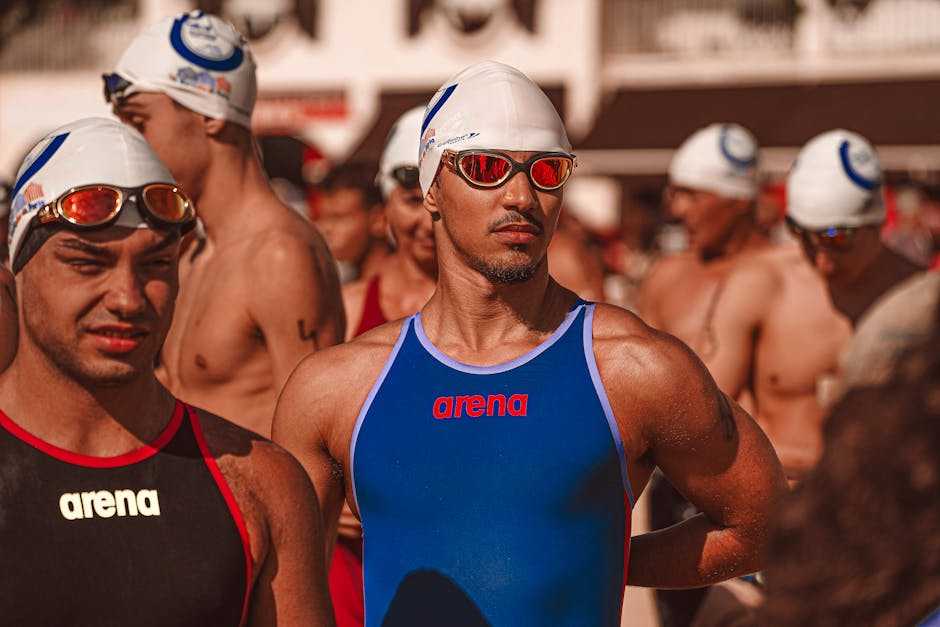As a seasoned swimmer, I know the importance of fueling my body with the right nutrients to enhance performance and recovery. One key player in this game is omega-3 fatty acids. These essential fats offer a myriad of benefits that can give swimmers a competitive edge in the water. From reducing inflammation to supporting cardiovascular health, the advantages of incorporating omega-3s into a swimmer’s diet are hard to ignore.
In this article, I’ll dive into the science behind omega-3 fatty acids and how they specifically benefit swimmers. Whether you’re a competitive athlete or a recreational swimmer, understanding the impact of these healthy fats on your body can make a significant difference in your overall performance and well-being. So, let’s explore why omega-3 fatty acids are a must-have supplement for swimmers looking to take their skills to the next level.
Understanding Omega-3 Fatty Acids
As a swimmer, it’s crucial to grasp the significance of omega-3 fatty acids in my training regimen. These essential nutrients play a vital role in enhancing my performance and aiding in swift recovery after intense workouts.
Types of Omega-3s and Their Sources
I rely on two primary types of omega-3 fatty acids: eicosapentaenoic acid (EPA) and docosahexaenoic acid (DHA). EPA is commonly found in fatty fish like salmon, mackerel, and sardines, while DHA is abundant in fish oil and algae supplements. Incorporating these sources into my diet ensures I am receiving the necessary omega-3s to support my swimming endeavors.
How Omega-3s Affect the Body
Omega-3 fatty acids are known for their anti-inflammatory properties, which can help reduce muscle soreness and inflammation post-training sessions. Moreover, these essential fats support cardiovascular health by maintaining optimal blood flow and lowering the risk of heart issues. By including omega-3s in my diet, I’m not only improving my overall performance but also safeguarding my well-being as a swimmer.
The Role of Omega-3s in Athletic Performance

Omega-3 fatty acids play a crucial role in enhancing athletic performance, including for swimmers. By optimizing muscle recovery and improving cardiovascular health, these essential nutrients offer significant benefits that can directly impact an athlete’s overall capabilities.
Enhancing Muscle Recovery
Incorporating omega-3 fatty acids into a swimmer’s diet can support quicker muscle recovery after intense training sessions. The anti-inflammatory properties of omega-3s, particularly EPA and DHA, help reduce muscle soreness and inflammation, allowing swimmers to bounce back faster and perform consistently at their peak levels.
Improving Cardiovascular Health
Omega-3 fatty acids are known for their positive effects on cardiovascular health, which is vital for swimmers who rely on efficient oxygen delivery to muscles during training and competitions. By promoting heart health and improving circulation, omega-3s contribute to better stamina, endurance, and overall cardiovascular function in swimmers, enabling them to excel in their sport.
Specific Benefits for Swimmers
As a swimmer, I’ve experienced firsthand the advantages of incorporating omega-3 fatty acids into my diet. Let’s delve into how these essential nutrients specifically benefit swimmers.
Boosting Respiratory Health
Improving respiratory health is crucial for swimmers as it can enhance endurance and performance in the water. Omega-3 fatty acids have been found to reduce exercise-induced bronchoconstriction, which may help swimmers breathe more efficiently during intense training sessions and competitions. By supporting lung function, omega-3s can contribute to better oxygen uptake and utilization, ultimately boosting overall performance in the pool.
Reducing Inflammation and Joint Pain
Swimmers often face inflammation and joint pain due to the repetitive nature of their sport. Omega-3 fatty acids, particularly EPA and DHA, are known for their potent anti-inflammatory properties. By reducing inflammation, omega-3s can help alleviate muscle soreness, joint discomfort, and swelling, allowing swimmers to recover faster after rigorous training sessions. This decreased inflammation can also aid in preventing injuries and maintaining optimal joint health, essential for long-term performance and success in swimming.
Incorporating Omega-3s into a Swimmer’s Diet
When looking to enhance my performance as a swimmer, incorporating omega-3 fatty acids into my diet becomes crucial for optimal results.
Recommended Daily Intake
As a swimmer, I aim to consume around 250-500 milligrams of combined EPA and DHA omega-3 fatty acids each day to support my performance and recovery. This amount can typically be obtained through a balanced diet rich in fatty fish, flaxseeds, chia seeds, or walnuts.
Ideal Food Sources for Swimmers
To meet my omega-3 needs, I prioritize including fatty fish such as salmon, mackerel, or sardines in my meals at least twice a week. Supplementing with fish oil capsules can also be a convenient way to ensure I’m getting an adequate intake of omega-3 fatty acids.


 is a passionate advocate for fitness and healthy living, blending her expertise in swimming with a dedication to overall wellness. With years of experience both in and out of the pool, she offers valuable insights on effective workout routines, nutrition, and lifestyle habits that support peak performance and vitality. Rosamie’s writing is characterized by its practical advice, encouraging readers to adopt sustainable habits for long-term health and fitness. She frequently shares her personal journey and success stories to motivate others, and her articles often include actionable tips that readers can easily incorporate into their daily lives. By focusing on a holistic approach to fitness, Rosamie aims to help individuals not only achieve their athletic goals but also cultivate a balanced and fulfilling lifestyle.
is a passionate advocate for fitness and healthy living, blending her expertise in swimming with a dedication to overall wellness. With years of experience both in and out of the pool, she offers valuable insights on effective workout routines, nutrition, and lifestyle habits that support peak performance and vitality. Rosamie’s writing is characterized by its practical advice, encouraging readers to adopt sustainable habits for long-term health and fitness. She frequently shares her personal journey and success stories to motivate others, and her articles often include actionable tips that readers can easily incorporate into their daily lives. By focusing on a holistic approach to fitness, Rosamie aims to help individuals not only achieve their athletic goals but also cultivate a balanced and fulfilling lifestyle.
